
Discover when and why your business needs an AI software engineer. Learn key skills, use cases, and how to find the right talent for your AI projects.

AI is no longer a future trend. It's becoming a practical tool for many companies, not just tech giants. Retailers use it to recommend products, banks rely on it to detect fraud, and startups build entire apps around AI features.
44% of respondents in software engineering state that the use of analytical AI tools increased the revenue of their companies. That’s why more businesses are now considering outsourcing software development using AI, not as a “nice to have” experiment but as a real driver of growth.
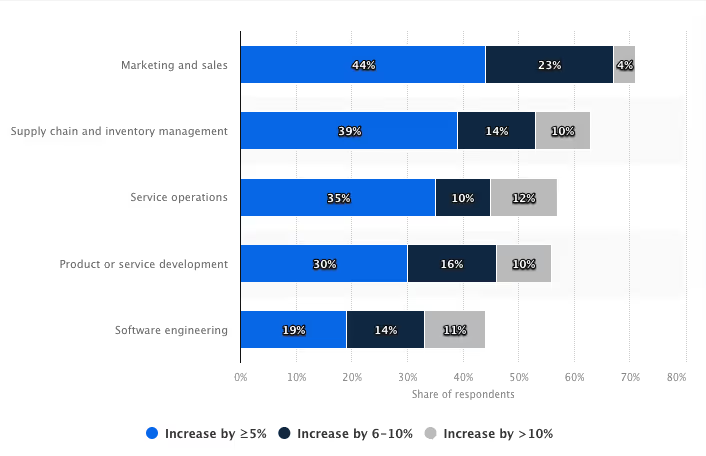
The challenge is that turning AI from an idea into a working solution isn’t simple. Off-the-shelf platforms can only take you so far. At some point, you’ll need a specialist who can design models, work with data, and integrate AI into your existing systems. That’s the role of an AI software engineer.
Hiring one can feel like a considerable challenge, especially if your team hasn’t worked with AI before. This article explores how the AI revolution is reshaping software engineering, what makes AI engineers valuable, and why outsourcing firms can be the smartest way to bring this expertise into your business.

AI in development has gone from simple automation to full-fledged AI software engineers capable of handling complex engineering tasks with minimal human input. Businesses that fail to leverage AI risk being left in the dust while their competitors build better software faster and cheaper. But here’s the kicker—staying ahead doesn’t mean figuring it all out alone. That’s where outsourcing artificial intelligence development comes in.
Productivity has always been the name of the game in software engineering. The first big leap? Automation tools that took repetitive tasks off developers’ plates. These weren’t exactly groundbreaking — they just cut out unnecessary button-clicking and streamlined workflows. Useful? Sure. But they were nothing compared to what came next. Back then, people started to wonder how to hire developers for a startup and were breaking their heads to find this service offering.
As artificial intelligence advanced, we started seeing AI-powered communication tools that could handle slightly more complex engineering tasks. Instead of just automating repetitive tasks, they could generate snippets of code, suggest machine learning models, and even improve software quality. This was a step up, but it was still limited — AI wasn’t quite ready to take over. At this point, outsourcing firms became more and more popular as companies required more and more human resources allocation and could not afford to hire hundreds of people in one day.
Fast forward to today, and we’ve entered a whole new era. AI software engineers aren’t just helping — they’re building. Tools like GitHub Copilot, Devin, and GPT-Engineer can now write code, create full applications, and even fix bugs before developers catch them. This shift is especially impactful in SaaS development, where AI-powered automation can streamline deployment, optimize scalability, and enhance user experience with minimal manual intervention. Generative AI combined with machine learning techniques has given rise to AI agents that can understand human language, recall the relevant context, and execute specific tasks with astonishing accuracy, especially in SaaS startups.
And we’re just getting started. With large language models, statistical analysis, and computer vision evolving rapidly, AI-powered software development isn’t just an option — it’s the future.
Many tools dwell in the market and aid developers in creating code. Some of the highlights of software outsourcing that everyone should know about are:

Devin AI — Devin AI is an autonomous artificial intelligence assistant tool created by Cognition Labs. Branded as an "AI software developer", the demo tool is designed to complete software development tasks. The tool has received praise, concern, and skepticism over implications surrounding the future of artificial intelligence and software development.
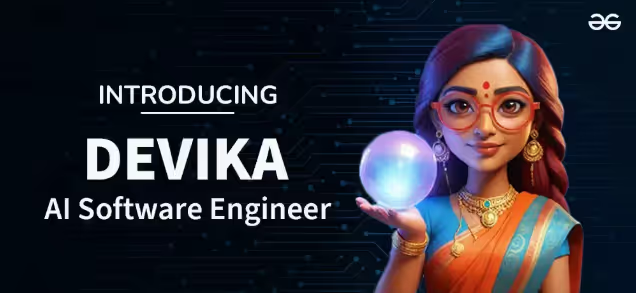
Devika — Devika is an Agentic AI Software Engineer that can understand high-level human instructions, break them down into steps, research relevant information, and write code to achieve the given objective. Devika aims to be a competitive open-source alternative to Devin by Cognition AI.
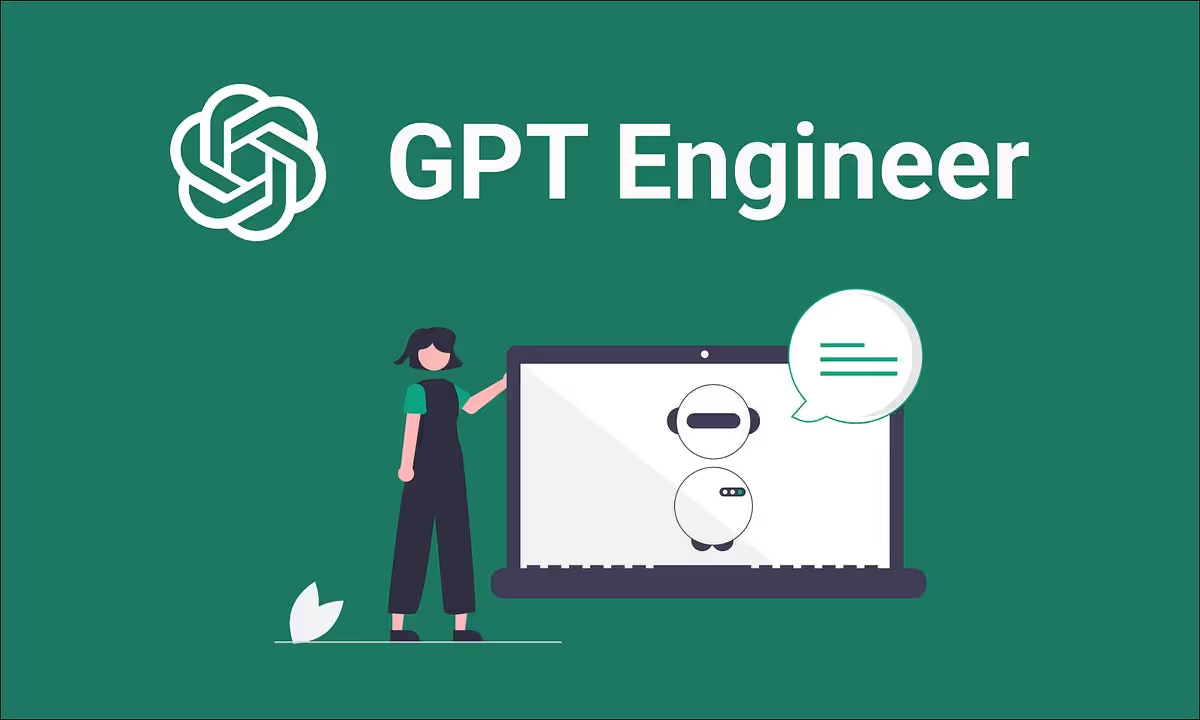
GPT-Engineer — In short, the GPT-engineer is an AI-powered app builder that translates a project description into a ready-to-use codebase. The solution is based on GPT models and can convert natural language processing into code, execute it, and implement improvements in existing projects.
We already listed 3 resources, but there are many more that you can find and use. These are the most popular ones, but the market is full of niche and small, specified AI development tools that you can discover on your own. Software development outsourcing can be a strategic way to tap into experts who already have a proven track record with these AI tools, ensuring seamless integration of your AI strategy, complete data protection, and maximum efficiency.
The point is that the companies that understand and utilize these tools can provide you with much more optimized development and deliver better and faster results. Companies that use these tools also understand that AI services is the future of development, so it’s a good idea to stick with partners that look into the future and understand market trends and tendencies.

The benefits of outsourcing software development are quite obvious, and we`ve discussed them many times in our previous articles, but let`s revise:
The most obvious benefit is cost savings. Outsourcing software development in your native market will save you some money, but outsourcing software development to a country with lower labor costs will save you much more. The first wave in cutting costs was staff augmentation, which provided unlimited possibilities of increasing your workforce by hiring a contractor with a packed staff to work on your AI project.
By outsourcing software development, you increase the opportunity of finding a team that can perform tasks faster and better than an average in-house team. Many outsourcing providers also offer product development services, ensuring that your software is not only built efficiently but also aligned with market needs and user expectations. Software development outsourcing offers access to global talent, leaving you with many options to find the best fit for your AI project.
B2B relations with the development outsourcing company establish strict time limits for those who actually develop the software. AI-driven technologies facilitate the automation of testing activities, foresee delays, shortening the development cycle, and simplify procedures, delivering superior software and a faster project. Outsourcing software development eliminates the direct human factor— you work with an organized business that delivers the solutions you need. This allows you to focus on your core business functions while the software development process is managed externally. If you are interested in maxing out your technical productivity, look into getting CTO as a service.
When you outsource software development, you have time to concentrate on other aspects of your business that matter. Focus on customer engagement, improve your business strategy, or use your resources for marketing. You can do anything else and not worry about the software development process. Obimy, the app we mentioned earlier, recently hit the mark of 5 million users. That`s what happens when you focus on internal operations and marketing instead of technical struggles.
Software development outsourcing gives you full control and flexibility. You can decide to downsize or upsize the software development team based on the needs of your AI project. If you're scaling a frontend-heavy application, for example, you might need to hire React.js developers quickly to keep up with demand—something outsourcing makes seamless. This flexibility means you won’t have to hire or fire members of your in-house development team in the future.
Experienced software outsourcing companies provide human expertise in managing risks associated with software development projects, such as technical challenges, compliance issues, or market uncertainties. The B2B nature of your relationship with the software development outsourcing partner establishes trust and a focus on results. The software outsourcing provider will manage their own force majors so you won’t have to.
Data security and data privacy are the major challenges in outsourced projects. Risk mitigation is very important for companies that operate with sensitive data. Governmental websites require a great deal of security and risk management in order to store data safely, so you should look into proper website development services if you want to create a secure website.
The point we are trying to make is that transforming software development outsourcing to the right partner who understands the necessity of using AI-assisted software development is a smart and reasonable solution. Consider researching your future tech partner to understand their reliability.
The main point of using AI tools is to eliminate routine tasks. AI technology was envisioned as an assistant that was supposed to make the life of an average worker better and more productive. It can eliminate repetitive tasks and actions in code-creating that will optimize by approximately 30%.
Trying to utilize these tools on your own can be quite challenging because it will require trained professionals who can train other people. Instead of struggling to build everything in-house, it might make more sense to hire a frontend developer with AI expertise who can seamlessly integrate these tools into your workflow.
Asking an outsourcing partner for help in using AI development tools will be a smarter option. Usually, when the partner proposes some tools, they already have a great deal of experience in using them and you will spend time and money on training your own employees.
By working with an experienced AI outsourcing partner, businesses can quickly integrate AI tools into their workflows without the steep learning curve. These partners already understand the best practices, potential pitfalls, and most effective ways to use AI systems for development. If you're exploring how to hire remote developers who can seamlessly work with predictive analytics, AI services and AI algorithms, AI outsourcing provides a direct path to skilled professionals without the hassle of recruitment and training.
Instead of struggling to figure things out internally, companies can focus on their core tasks while benefiting from optimized processes. This approach not only saves time but also ensures that AI tools are used to their full potential, delivering maximum efficiency and value.
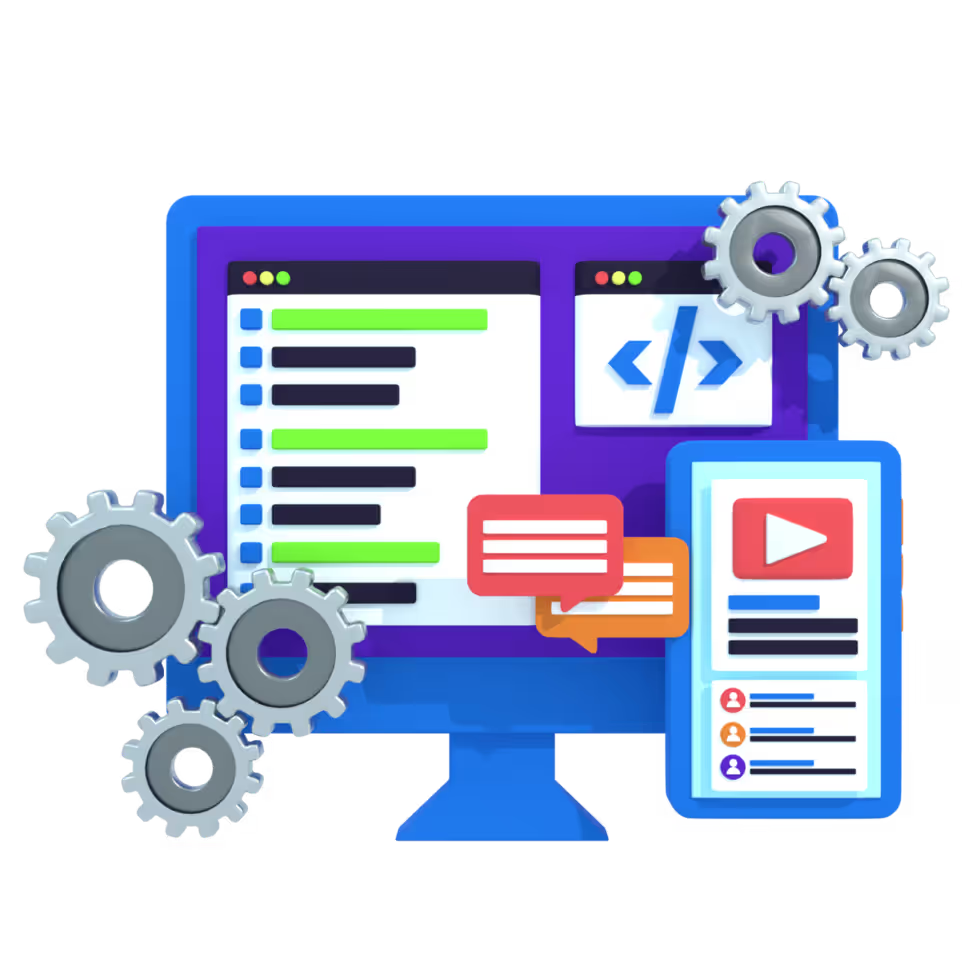
Let’s be real — AI software engineering is the future of software development, but jumping into it without a game plan? That’s a recipe for frustration. From the technical complexity of integrating AI-powered tools to the high costs of training engineering teams, there are plenty of hurdles. But here’s the good news: traditional software development outsourcing eliminates those headaches and gets you straight to results.
Bringing AI-powered solutions into your workflow isn’t like downloading an app and calling it a day. Training an AI software engineer to understand business needs, handle complex engineering tasks, ensure high operational efficiency and code quality that actually works takes time. Not to mention, not every AI model is optimized for your specific use case. You need industry professionals who can fine-tune models, leverage machine learning techniques, and ensure your AI applications are up to the task. Integrating AI technologies into your website may compel you to hire a skilled backend developer who will be able to properly integrate AI initiatives into the brains of your web application.
Free online courses and open-source AI agents can only take you so far. The real challenge is knowing how to implement artificial intelligence in a way that actually improves your software quality rather than just adding another layer of complexity. That’s where AI-powered outsourcing shines — it gives you access to outsourced teams that have already solved these problems.
Think adopting AI-powered tools is just a one-time investment? Think again. Developing custom machine learning models, hiring experts in natural language processing, and ensuring AI agents can handle specific tasks costs serious money. We’re talking anywhere from $6,000 to over $300,000, depending on the scope.
Plus, ongoing support, continuous improvements of software solutions, feature requests, and model adjustments rack up expenses fast. If you’re wondering how to hire a full stack developer who can navigate both frontend and backend AI integration, you’ll need someone with the right mix of experience and adaptability—another reason why outsourced teams can save you time and money.
Instead of pouring money into trial-and-error development, why not leverage AI technologies the smart way? AI-driven outsourcing partners lets you tap into experienced software developers who already have access to the best open-source repositories, large language models, high quality assurance, and AI software engineering techniques with significant cost savings.
If your business doesn`t have at least some developers with a head on their shoulders and you decide to do this whole AI system thing on your own, you might run into reliability issues. What we mу by that is the code AI-powered developer is providing you may be irrational and not very optimized.
It`s great to automate processes and perform routine tasks under the watchful eye of a skilled developer or AI development specialist. Also, to put together a complex AI&ML system you may need to hire a full stack developer who will oversee integrations and the functions of your systems as a whole.
Overall, these challenges can be eliminated if you opt to work with the right technical partner who understands the industry trends and can make sure that the implementation of AI Software is done properly.
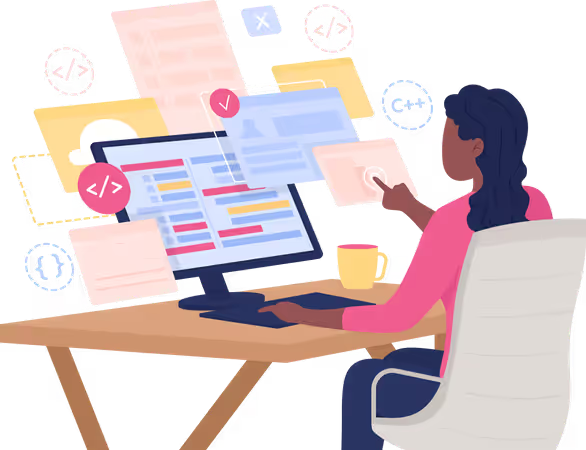
Provide insights into how the outsourcing industry will continue to transform software engineering with AI technologies. Position transforming software development outsourcing as the best way for businesses to stay ahead of these changes, ensuring they remain competitive in an increasingly AI-driven world.
Time-to-market of software development with the use of AI will be much faster. When companies implement AI into their usual workflow, they will deliver results much faster. However, staying in line with these extremely rapid changes can be challenging, so make sure to keep up with the necessary human expertise, skills, costs, and other factors. For emerging businesses, understanding how to outsource software development for startups can be a game-changer, allowing them to leverage AI-driven efficiencies without the overhead of building an in-house team. Look into AI software engineers' outsourcing to stay updated.
With the use of artificial intelligence, software will be able to change itself, eliminate bugs, and heal downs that otherwise require human attention. We already have examples of reliable quality assurance performed by specifically trained AI that understands the specifics of certain programming languages and models. As AI takes on more development tasks, businesses may start rethinking how to find a web developer who can work alongside AI-driven tools to fine-tune and optimize software. We predict that in the future, you will be able to hire an AI QA team that will ensure that your software functions properly in controlled and uncontrolled environments.
AI adoption is on the rise. In the future, when every company uses AI, we may run into the problem where operating AI machinery will require set of unique skills that will not be available to everyone. As AI-driven applications grow more complex, businesses looking to hire Java developers for backend systems will need professionals who can integrate AI capabilities seamlessly. Training internal teams in this case could be time-consuming and cost a lot of money, so software development outsourcing will be a viable option to save funds and nerves.
AI in software isn’t just a trend — it’s rewriting the rules entirely. From cranking out code in seconds to automated testing, from analyzing data to fixing bugs before they even cause a problem, AI-powered tools are making development faster, smarter, and way more efficient. If you’re not using AI development in your workflow yet, you’re already behind.
But here’s the thing: adopting AI isn’t as simple as flipping a switch. That’s where Empat comes in. Our outsourcing firm helps businesses hire AI developers and integrate artificial intellegence into their products and workflows. Whether you need to enhance your SaaS platform, streamline internal processes, or build a new AI-powered solution from the ground up, our technical and project management outsourced team can make it happen.
AI software engineers are here to stay, and the companies that embrace them will dominate the future. Don’t get left in the dust — let’s talk about how we can bring AI-powered development to your business today.
Artificial intelligence (AI) engineers are responsible for developing, programming and training the complex networks of algorithms that make up AI so that they can function like a human brain. This role requires combined expertise in software development, programming, data science, and data engineering.
An AI software engineer designs, builds, and integrates AI systems into products or workflows. Their work can involve training machine learning models, writing algorithms, or embedding AI tools into existing applications. Unlike traditional developers, they combine programming skills with data science, predictive analytics, and problem-solving.
If you’ve outgrown basic AI-powered communication tools and need custom solutions—like predictive analytics, big data analysis, recommendation systems, real time data analysis, or AI-powered automation—it’s time to bring in an AI engineer. Startups often hire them when scaling, while established companies bring them on to improve efficiency or launch new AI-driven products.
It depends on your goals of leveraging AI. In-house hiring makes sense if you need long-term AI strategy and product ownership. AI outsourcing works best if you want faster results, lower costs, or access to global expertise without building an entire AI team from scratch. Many companies use a hybrid model—using outsourcing strategies at first, then hiring in-house later.
Salaries vary widely by location and experience. In the U.S., an AI engineer may cost $120k–$200k per year, while outsourcing to Eastern Europe or Asia can cut that cost by 40–60%. Project-based outsourcing can range from $6,000 to $300,000 depending on scope and complexity.


